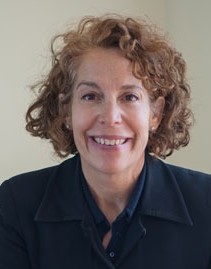What will 2025 look like? The ‘World Ahead 2025’ from The Economist is forecasting a year of uncertainty and instability. CIO Views envisions unprecedented advances in technology that promise to reshape industries, societies, and even human potential itself. While the sands of the business landscape shift, two things are clear: communications will have a central role in business, and a trusted reputation, whether corporate or brand, will continue to be the underpinning for success.
“The evolution in business is not happening to us; we are an integral part of the exciting changes,” said Shruti Bose, Head of Global Campaigns at Roche. “We’re in a great position – for communications and reputation, the time is now.”
How should practitioners be in the driver’s seat? In the fast-changing times ahead, communications practitioners will want to have skills Shruti refers to as “muscles.” We talked about those that will be most important for the year ahead. These include:
Future readiness: Rather than hone the ability to react to issues or situations that need immediate response, communicators should focus on proactive risk management –scenario planning, identifying issues that could be potential disruptors, taking a good look at existing messaging and making adjustments that will head-off problems. For example, I recently took a consumer healthcare brand through a structured process to hash out the potential impact of various scenarios and land on rock-steady messaging, published evidence and supportive third-party opinions.
Brevity: Time is tight; attention spans are shrinking. Nothing new here, but it does require communicators to be able to articulate an opinion or an idea as briefly as “a sentence,” says Shruti. Considering leaders are under similar time pressure and must make decisions —whether an approval or a red light — communicators must give them the information they need quickly and with clarity. My Jacob Stahl partner, Jeremy Jacob, agrees with Shruti and recalls how the EVP of marketing at Seagram’s would tell the consultancy before every meeting, “Be brief. Be brilliant. Be gone.” Good words to live by in 2025.
Speak the language of business: In a polarised world, reputation work should reflect core values rather than be aligned with something external, such as an issue or a cause. Not only is this sustainable and authentic, but it is also a reliable way to prevent getting drawn into controversies or politics. “Brands have to work harder to hold a neutral position,” explained Shruti. Doubling down on facts, data and storytelling that track closely to what the company or brand stand for is the way to go. Campaigns that support reputation building should not be designed to “impress,” but rather to show what the brand/company stands for. According to Shruti, “In a noisy environment, values are what help to separate the best from the rest.”
Integrity: Shruti underscored the sad result of misinformation and disinformation: “We’re operating in a ‘no trust’ environment. The level of cynicism is off the charts.” She recommends communicators take a look at Stephen Covey’s, ‘The Speed of Trust: The One Thing That Changes Everything’. What else should communicators do? Never forget our role as the ‘conscience’ of a company. Never ‘spin. Always have a North Star that keeps you in balance. For Shruti, it is a commitment to connecting people and ideas.
Have a Challenger Mindset: Shruti firmly believes in diversity of thought and works hard to bring new perspectives to planning campaigns for Roche. It’s not about being contrarian just for the sake of it, but rather to be sure meetings don’t devolve into an ‘echo chamber’ with the role for communicators to simply execute. “We aren’t at the table to ‘people please,’” she stated. Instead, we need to drive strong ideas that are authentic to company or brand values and show stakeholders something valuable – perhaps help them do their jobs better, or think differently about a challenge or influence behaviour change among target audiences. Says Shruti, “this isn’t always the easiest role to play, but “one where we need to be braver,”
We also discussed what’s ahead for our own communications industry, especially given the young population that will drive India forward. We agreed those of us who have been at it for a decade or more need to do exceptional work, not only to keep communications a ‘must have,’ but also to present the next generation with a vision for what excellence looks like, as we shift from communications as an ‘independent’ role to more of an interdependent one. Communications can and does lead reputation and brand campaigns, not only to make a significant contribution of its own but also ensure other elements work in sync.
The Indian economy appears set to outperform again in 2025, and as we wrapped up our discussion, Shruti and I talked about the great position India is in right now. She has the perspective of having started her career at an consultancy in India and worked in other markets – Singapore and now Basel, Switzerland. As India moves steadily toward economic superpower status, as it is predicted to be in the next 15 years, communicators will be at the forefront of the key issues – sustainability, eco-consciousness, technology, innovation, and more. We’re not just along for the ride. We’re in the driver’s seat.
The views and opinions published here belong to the author and do not necessarily reflect the views and opinions of the publisher.



Be the first to comment on "In the driver’s seat"